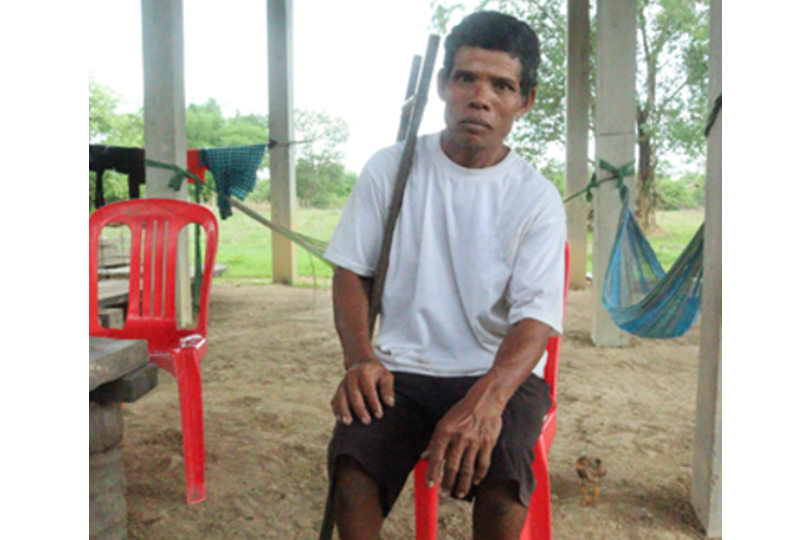In the quiet village of Krom, nestled along the Mekong River in Stung Treng province, 46-year-old Mr. Son Bai lives with his wife and daughter in a modest household with no electricity or reliable water supply. A person with disability, his livelihood depends on farming, forestry, and fishing—activities that have grown increasingly difficult as local ecosystems deteriorate. Once residing on an island with abundant fish stocks, declining catches and weakened physical health forced Bai to relocate to the mainland, where fishing trips are longer and more strenuous.
Despite these challenges, Mr. Bai emerged as an active contributor to the IP2 project implemented by My Village Organization (MVi). His firsthand knowledge and experience became vital in shaping inclusive dialogue around cross-boundary river ecology and fisheries management.
During a community meeting focused on environmental changes, Mr. Bai shared insights on shifting fishing practices and ecological impacts in the Mekong. He later participated in a household interview, providing detailed accounts of declining fish stocks and the economic strain on his family. Recognizing the value of his voice, MVi invited him to a regional dissemination workshop—where he engaged directly with local authorities and other stakeholders.
This rare opportunity allowed Bai to express the lived reality of marginalized fishers with disabilities. His perspectives helped bridge the gap between community members and policymakers, calling attention to the pressing need for inclusive approaches to water governance and natural resource protection.
Through his involvement, Mr. Bai not only amplified the concerns of his community but also demonstrated how persons with disabilities can contribute meaningful insights to environmental decision-making. His story reminds us that inclusion isn’t just a principle—it’s a necessity for sustainable, equitable resource management.

